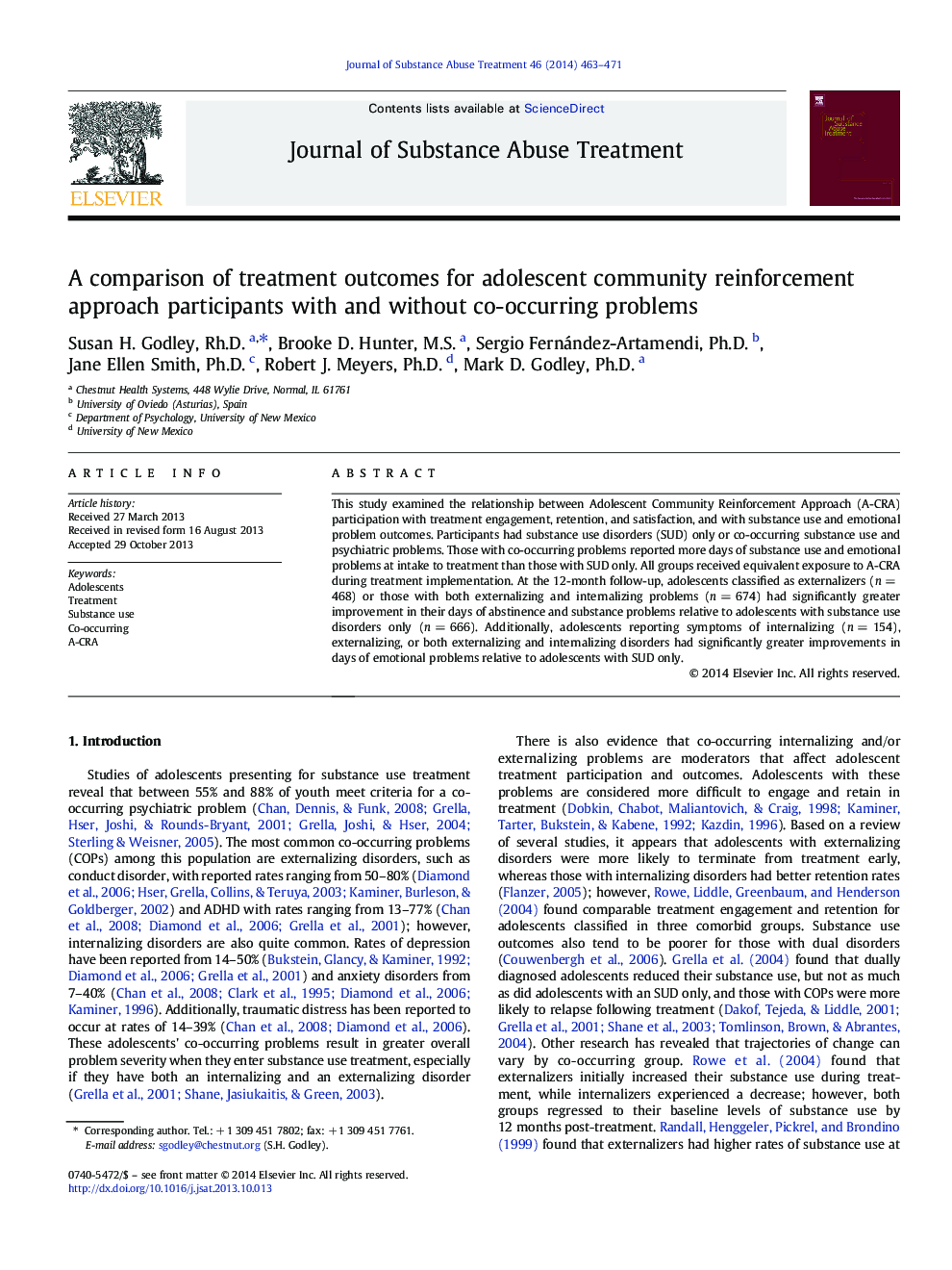| Article ID | Journal | Published Year | Pages | File Type |
|---|---|---|---|---|
| 10302687 | Journal of Substance Abuse Treatment | 2014 | 9 Pages |
Abstract
This study examined the relationship between Adolescent Community Reinforcement Approach (A-CRA) participation with treatment engagement, retention, and satisfaction, and with substance use and emotional problem outcomes. Participants had substance use disorders (SUD) only or co-occurring substance use and psychiatric problems. Those with co-occurring problems reported more days of substance use and emotional problems at intake to treatment than those with SUD only. All groups received equivalent exposure to A-CRA during treatment implementation. At the 12-month follow-up, adolescents classified as externalizers (n = 468) or those with both externalizing and internalizing problems (n = 674) had significantly greater improvement in their days of abstinence and substance problems relative to adolescents with substance use disorders only (n = 666). Additionally, adolescents reporting symptoms of internalizing (n = 154), externalizing, or both externalizing and internalizing disorders had significantly greater improvements in days of emotional problems relative to adolescents with SUD only.
Related Topics
Life Sciences
Neuroscience
Biological Psychiatry
Authors
Susan H. Rh.D., Brooke D. M.S., Sergio Ph.D., Jane Ellen Ph.D., Robert J. Ph.D., Mark D. Ph.D.,
